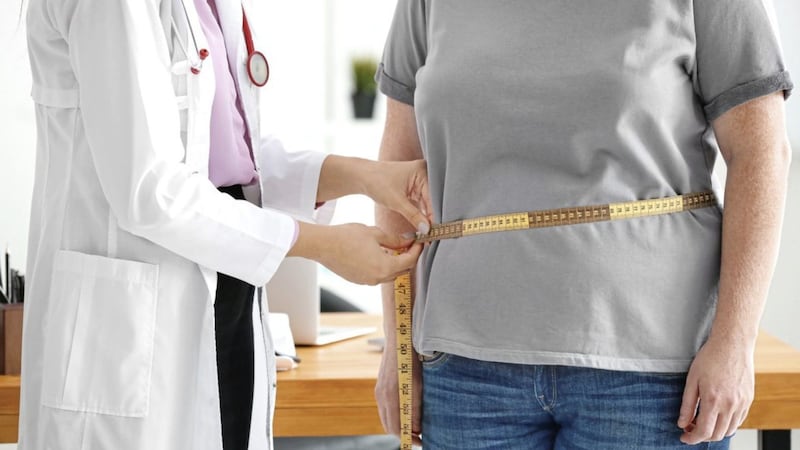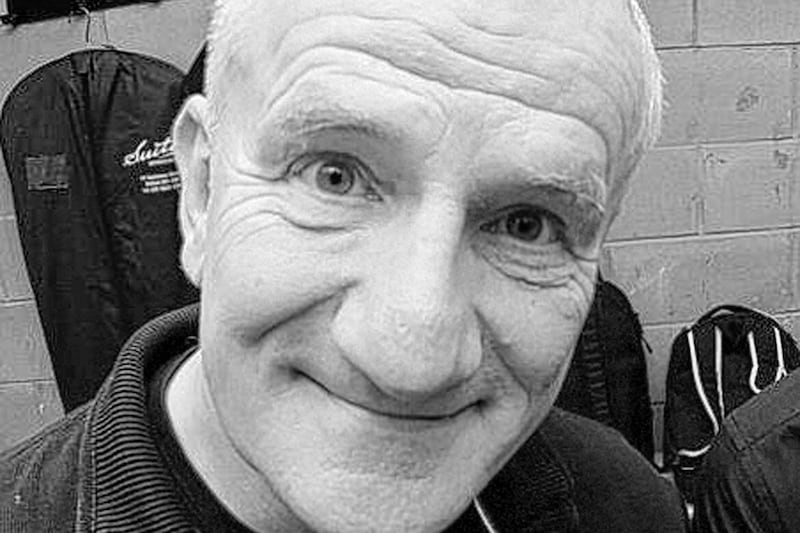FOR most of my life, I've been a fatty. I was a fat child, not that it bothered me too much – until, that was, I reached my teenage years. I then made half-arsed attempts to cut back and diet, though in my own eccentric fashion.
My idea of dieting was drinking a diet Coke while munching down two Mars bars. I found the world isn't sympathetic to those of us who fall outside the accepted 'normal' body shape. Every time I bought a pair of trousers, I needed them adjusted, as invariably my waistline was bigger than my inside leg measurement.
It wasn't until my 40s when I unknowingly began to exhibit symptoms of coeliac disease that my bodyweight fell to what is considered 'average'. My co-panellist on the Blame Game, Colin Murphy, joked that I'm the only person he knows who got a disease which resulted in me ending up healthier. Not that it felt like that at the time.
As an undiagnosed coeliac, I was continually nauseous and couldn't eat – as we say in these parts 'the weight fell off me'; at my lightest, I was 10st 5lb. For the first time in my life, I had a perfect BMI, though I looked emaciated. Friends and family told me later I looked so bad they worried I was seriously ill.
I mention my journey with fluctuating body weight after the recent controversy around an advertising campaign by Cancer Research UK. They used images of cigarette packets with the warning, 'Obesity: it's a cause of cancer too'.
Many in the 'fat and proud' contingent argued the campaign smacked of 'fat-shaming', denouncing it as the public humiliation of larger people. While I understand where they're coming from, I don't agree.
Realities have to be faced: being severely overweight has associated health risks, many of them so serious as to be life limiting. It would be remiss of a health charity such as Cancer Research UK to ignore the overwhelming scientific evidence which supports this fact.
Our society is experiencing a never-before-seen spike in obesity rates, with the attendant pressures this puts on an already-stretched National Health Service.
And it isn't just cancer – being obese leaves you vulnerable to a plethora of other ailments including diabetes, cardiovascular disease, strokes… the list goes on.
Those who peddle the myth of 'fat and healthy' must separate bullying from health issues, or be seen in the same light as those who once argued 'smoking is good for you'.
My issue with the Cancer Research advertising campaign has more to do with its sole focus on the individual, totally ignoring the causational factors which lead to so many becoming overweight. Obesity, while usually due to a bad diet combined with a lack of exercise, can also have other contributory factors.
For us to take personal responsibility for our health, we need accurate information about the amount of hidden fat and sugar present within our food. Just as allergen labelling is now becoming the norm, why isn't the calorific content of our food clearly and prominently identified?
Two years ago, the Tory Government finally accepted the mountain of medical research proving the link between sugar-laden drinks and childhood obesity rates. With a tax imposed on sugary drinks, a survey found 90 per cent of the public supported the Government working with the food industry to make food and drinks healthier.
As Mayor of London in 2015, our new Prime Minister Boris Johnson was commendably ahead of the curve, stridently supporting the then proposed new tax. At the time he stated, "We have more obese adults than we have normally proportioned human beings and that is a quite extraordinary state of affairs. It's a massive health risk".
Yet, in a U-turn of momentous proportions – even for Boris – this month he promised a halt to the extension of what he now calls 'sin taxes' on sugar-laden milk drinks.
What could have altered his thinking? Tate & Lyle Sugars have, in the past, been visible sponsors of the Conservative party, with their name emblazoned on lanyards worn by speakers and delegates at the party conference in 2017. Surely such overt linkage between the Government and a major food manufacturer is suspect?
What looks like a lanyard can turn out to be a dog collar, and it seems that our new PM has already had his collar yanked.









